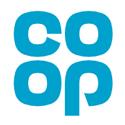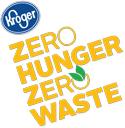Highlights
Alibaba Deploys Blockchain Pilot To Ensure Food Authenticity
 Alibaba is testing blockchain technology to track products and ensure food authenticity. It is working with two food products, one from Australia and one from New Zealand – and giving consumers the ability to scan a QR code to verify product authenticity. Fake food has long been a problem in China and Michigan State University estimates it costs the global food industry $40 billion per year. First announced in March 2017, the goal of this blockchain integration is to “achieve end-to-end supply chain traceability and transparency to enhance consumer confidence and build a trusted environment for cross-border trade,” said Alibaba. Investment in blockchain technology has doubled to $2.1 billion and industry projections see that expenditure reaching $9.7 billion in 2021, according to reports from IDC. Numerous firms, such as Alibaba’s industry rival JD, are also delving into blockchain tech to streamline the supply chain, auditing, and compliance processes.[Image Credit: © congerdesign from Pixabay]
Alibaba is testing blockchain technology to track products and ensure food authenticity. It is working with two food products, one from Australia and one from New Zealand – and giving consumers the ability to scan a QR code to verify product authenticity. Fake food has long been a problem in China and Michigan State University estimates it costs the global food industry $40 billion per year. First announced in March 2017, the goal of this blockchain integration is to “achieve end-to-end supply chain traceability and transparency to enhance consumer confidence and build a trusted environment for cross-border trade,” said Alibaba. Investment in blockchain technology has doubled to $2.1 billion and industry projections see that expenditure reaching $9.7 billion in 2021, according to reports from IDC. Numerous firms, such as Alibaba’s industry rival JD, are also delving into blockchain tech to streamline the supply chain, auditing, and compliance processes.[Image Credit: © congerdesign from Pixabay]
Macy’s Announces New Technologies For Better Customer Experience And Partnership With Facebook
 Macy’s revealed it is integrating new features, including virtual reality and augmented reality, to improve the experience of consumers shopping for furniture and beauty products. Also, the company said it will join forces with Facebook to bring almost 150 ecommerce brands to the retail chain’s The Market @ Macy’s retail platform. According to the retailer, the partnership will offer participating small businesses and ecommerce brands to take advantage of a Macy’s store environment during the holidays. During the Code Commerce On-Location Event in New York City, Macy’s will highlight several technologies, including virtual and augmented reality furniture shopping, augmented reality for beauty, beauty playground, and radio-frequency identification.[Image Credit: © macys.com]
Macy’s revealed it is integrating new features, including virtual reality and augmented reality, to improve the experience of consumers shopping for furniture and beauty products. Also, the company said it will join forces with Facebook to bring almost 150 ecommerce brands to the retail chain’s The Market @ Macy’s retail platform. According to the retailer, the partnership will offer participating small businesses and ecommerce brands to take advantage of a Macy’s store environment during the holidays. During the Code Commerce On-Location Event in New York City, Macy’s will highlight several technologies, including virtual and augmented reality furniture shopping, augmented reality for beauty, beauty playground, and radio-frequency identification.[Image Credit: © macys.com]
Multinational Corporations Support Campaign To Reduce Ocean Plastic Pollution
 Multinational corporations, including Coca-Cola and Walmart, pledged their support for the Ocean Plastics Charter signed by Britain, Canada, France, Germany, and Italy in June 2018. Despite an abstention by the two other G7 nations, United States and Japan, several non-G7 nations supported the plan to achieve 100 percent plastics recyclability by 2030. An announcement by Canadian Environment Minister Catherine McKena to create a new partnership with businesses to reduce plastic waste secured support from several companies, including Loblaws, Walmart, and IKEA, and Nestle Canada. Separately, Unilever announced the launch of a not-for-profit venture to reduce consumer and business waste.[Image Credit: © kakuko from pixabay]
Multinational corporations, including Coca-Cola and Walmart, pledged their support for the Ocean Plastics Charter signed by Britain, Canada, France, Germany, and Italy in June 2018. Despite an abstention by the two other G7 nations, United States and Japan, several non-G7 nations supported the plan to achieve 100 percent plastics recyclability by 2030. An announcement by Canadian Environment Minister Catherine McKena to create a new partnership with businesses to reduce plastic waste secured support from several companies, including Loblaws, Walmart, and IKEA, and Nestle Canada. Separately, Unilever announced the launch of a not-for-profit venture to reduce consumer and business waste.[Image Credit: © kakuko from pixabay]
British Supermarket Chain The Co-op Replaces Plastic Bags With Biodegradable Alternatives

The Co-op became the first supermarket chain in Great Britain to adopt compostable alternatives as a replacement for single-use plastic bags. The move follows the 2015 law that requires retailers to charge five pence for plastic bags and reflects the supermarket's commitment to eliminate non-recyclable plastics from its products. The biodegradable plastic bags will be distributed in all 2,600 Co-op locations. Supermarket Waitrose & Partners also indicated it would switch to compostable bags while Lidl announced it would remove all black plastic from packaging (black plastic has been targeted since it’s harder for recyclers to process).[Image Credit: © Co-operative Group Limited]
Kroger Fund Food Waste Prevention Curriculum For El-Sec Students
 Grocery chain Kroger has joined a Zero Hunger | Zero Waste partnership with World Wildlife Fund (WWF) to prevent and recover food waste in U.S. elementary and secondary schools. WWF, whose WIld Classroom provides an environmental curriculum for teachers and parents, is expanding the curriculum with the help of a $400,000 grant from Kroger’s foundation to focus on promoting food conservation education and best practices. The Food Waste Warrior Toolkit, a classroom-friendly curriculum that aligns with USDA and state educational standards, turns the school cafeteria into a classroom to inspire students to become Zero Heroes by making a lifelong commitment to reduce food waste. The free toolkit was tested in Washington, D.C., using resources from science, math, ecology, conservation, and sustainability.[Image Credit: © The Kroger Co.]
Grocery chain Kroger has joined a Zero Hunger | Zero Waste partnership with World Wildlife Fund (WWF) to prevent and recover food waste in U.S. elementary and secondary schools. WWF, whose WIld Classroom provides an environmental curriculum for teachers and parents, is expanding the curriculum with the help of a $400,000 grant from Kroger’s foundation to focus on promoting food conservation education and best practices. The Food Waste Warrior Toolkit, a classroom-friendly curriculum that aligns with USDA and state educational standards, turns the school cafeteria into a classroom to inspire students to become Zero Heroes by making a lifelong commitment to reduce food waste. The free toolkit was tested in Washington, D.C., using resources from science, math, ecology, conservation, and sustainability.[Image Credit: © The Kroger Co.]
North London Budgens Opens Plastic-Free Zones
Ahold Delhaize Unit Commits To Removing Artificial Ingredients From House Brands
Target Is Testing App That Highlights Foods Nearing “Best Used By” Dates That Sell At A Discount
Brand Sites Are Losing Out To Multi-Brand Giants
 New research finds that only around 10% of online shoppers are visiting brand sites, which are losing out to sites like Amazon. inRiver’s survey also found that consumers lose interest quickly and will move on if they can’t quickly find the information they want. The firm said that brands and retailers must take more care when selling online and consider issues such as the role of influencers and videos that showcase products, as well as providing comprehensive product information and reviews.[Image Credit: © inRiver]
New research finds that only around 10% of online shoppers are visiting brand sites, which are losing out to sites like Amazon. inRiver’s survey also found that consumers lose interest quickly and will move on if they can’t quickly find the information they want. The firm said that brands and retailers must take more care when selling online and consider issues such as the role of influencers and videos that showcase products, as well as providing comprehensive product information and reviews.[Image Credit: © inRiver]
Global Companies Join The New Plastics Economy Global Commitment
 Nearly 300 organizations have has joined a global initiative to eliminate plastic waste. The New Plastics Economy Global Commitment signatories include recycling companies, packaging producers and retailers. It was announced at the Ellen MacArthur Foundation’s 'Our Ocean' conference in Bali, and was launched in collaboration with UN Environment. The initiative has three main aims: eradicate unnecessary plastic and move away from single-use packaging; work towards 100% reusable, recyclable or compostable plastic packaging by 2025; and to circulate plastic by increasing the volume of plastics that can be converted into new products or packaging. CPG companies that have signed up include Johnson & Johnson, SC Johnson, Danone, L’Oréal, Mars, PepsiCo, Unilever and Coca-Cola. Other signatories include Walmart, Target, Carrefour, Metro AG, Lidl, Ahold Delhaize, H&M, Amcor and Novamont. [Image Credit: © New Plastics Economy]
Nearly 300 organizations have has joined a global initiative to eliminate plastic waste. The New Plastics Economy Global Commitment signatories include recycling companies, packaging producers and retailers. It was announced at the Ellen MacArthur Foundation’s 'Our Ocean' conference in Bali, and was launched in collaboration with UN Environment. The initiative has three main aims: eradicate unnecessary plastic and move away from single-use packaging; work towards 100% reusable, recyclable or compostable plastic packaging by 2025; and to circulate plastic by increasing the volume of plastics that can be converted into new products or packaging. CPG companies that have signed up include Johnson & Johnson, SC Johnson, Danone, L’Oréal, Mars, PepsiCo, Unilever and Coca-Cola. Other signatories include Walmart, Target, Carrefour, Metro AG, Lidl, Ahold Delhaize, H&M, Amcor and Novamont. [Image Credit: © New Plastics Economy]
Blockchain Technology Improves Walmart’s Food Safety, Reduces Food Loss
 Walmart is using blockchain technology to help track and manage the chaotic and decentralized food supply system comprising producers, suppliers, and intermediaries such as processors that change constantly. Blockchain technology, like the food system, is based on a decentralized and distributed model that fits the modern food system perfectly. Each player in the network can update data, but also stops them from entering false data or making false changes. The speed with which blockchain enables companies to trace products and problems back to the source means improved food safety and less economic loss, and reduced food waste. It quickly and accurately identifies the source of a problem so that only impacted products are recalled or removed, rather than everything in the category.[Image Credit: © Tumisu from Pixabay]
Walmart is using blockchain technology to help track and manage the chaotic and decentralized food supply system comprising producers, suppliers, and intermediaries such as processors that change constantly. Blockchain technology, like the food system, is based on a decentralized and distributed model that fits the modern food system perfectly. Each player in the network can update data, but also stops them from entering false data or making false changes. The speed with which blockchain enables companies to trace products and problems back to the source means improved food safety and less economic loss, and reduced food waste. It quickly and accurately identifies the source of a problem so that only impacted products are recalled or removed, rather than everything in the category.[Image Credit: © Tumisu from Pixabay]
Waitrose Has Accelerated Its Work To Eradicate Single-Use Plastic In Own-Label Packaging

Upmarket UK grocery retailer Waitrose has accelerated its commitment to making own-brand packaging more recyclable, reusable or compostable, bringing forward its 100 per cent target from 2015 to 2023. It has hit the 70 per cent level already and expects to reach 80 per cent by 2020. It says it is also close to taking all its own-label fruit, vegetables, meat and fish out of black plastic by the end of 2018, and will stop selling its own-label products in black plastic after the end of next year. [Image Credit: © Waitrose]
Copyright 2025 Business360, Inc.


